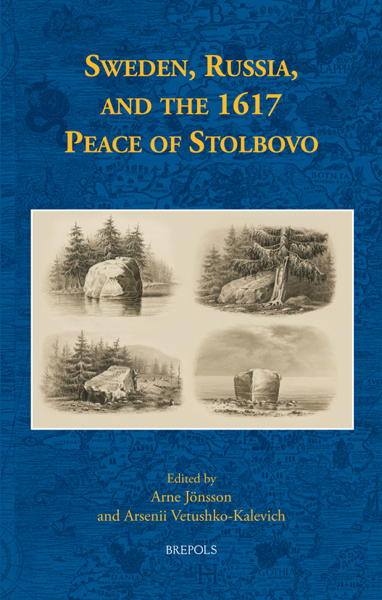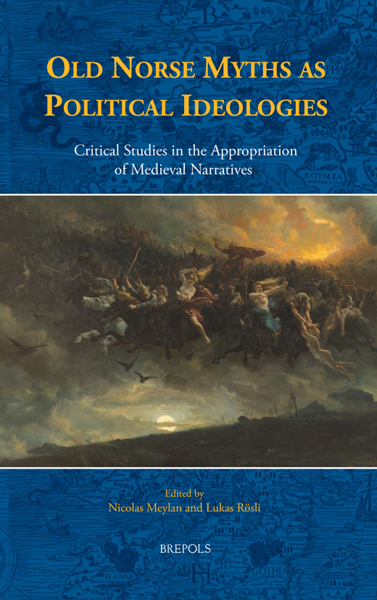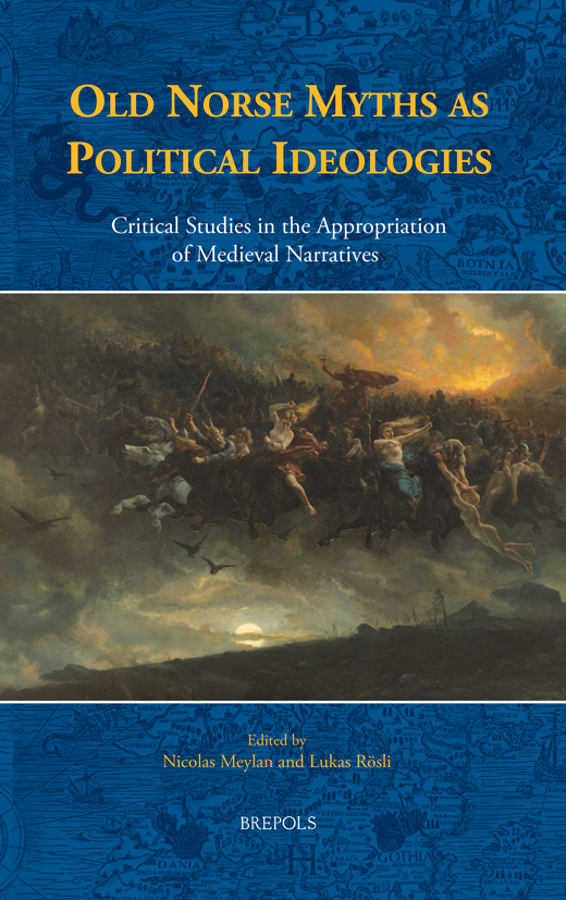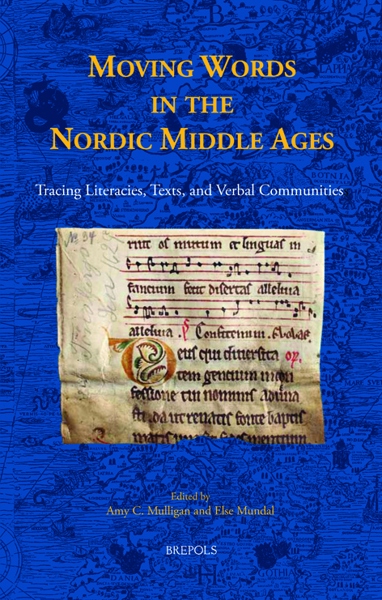
Old Norse Myths as Political Ideologies
Critical Studies in the Appropriation of Medieval Narratives
Nicolas Meylan, Lukas Rösli (eds)
- Pages: 260 p.
- Size:156 x 234 mm
- Illustrations:1 tables b/w.
- Language(s):English
- Publication Year:2020
- € 80,00 EXCL. VAT RETAIL PRICE
- ISBN: 978-2-503-58821-6
- Hardback
- Available
- € 80,00 EXCL. VAT RETAIL PRICE
- ISBN: 978-2-503-58822-3
- E-book
- Available
- Viking studies
- Cultural exchanges, transfers and influences
- Medievalism (in culture)
- North Germanic/Scandinavian languages & literatures
- Medievalism (in literature)
- Medieval literature (general or comparative)
- Cultural & intellectual history (c. 500-1500)
- North Sea lands studies (c. 500-1500)
- Cultural & intellectual history (c. 1501-1800)
“Without a doubt, the editors and chapter authors had made a significant contribution both to Viking medievalism and to understanding of how myths work: it is greatly to be hoped that their challenge to de-naturalise and re-politicise the beliefs that myths bolster is taken up both in academia and the wider world.” (Simon Trafford, in The Medieval Review, 21.10.28)
“Overall, the volume provides a good overview of the many ways in which Norse myths have been used to this day to give the appearance of unquestionable legitimacy to claims and political positions.” (Katja Schulz, in Speculum, 97/4, 2022, p. 1235)
“Meylan and Rösli’s volume is an important contribution to embracing a critical historio[1]graphic perspective not only on Old Norse myths themselves but on the work that creative artists and scholars perform in engaging with and sharing these materials.” (Thomas A. DuBois, in Journal of English & Germanic Philology, 122/3, 2023, p. 422)
The mythology of the Norse world has long been a source of fascination, from the first written texts of thirteenth-century Iceland up to the modern period. Most studies, however, have focused on the content of the narratives themselves, rather than the broader political contexts in which these myths have been explored. This volume offers a timely corrective to this broader trend by offering one of the first in-depth examinations of the political uses of Norse mythology within specific historical contexts. Tracing the changing interests and usages of Norse myths from the medieval period, via the nineteenth century and the importance of ancient Norse beliefs to both the Romantic and völkisch movements, up to the co-option of mythology and symbolism by political groups across the twentieth and early twenty-first centuries, the papers gathered here offer new and critical insights into the changing nature of historiography and the political agendas that Old Norse myths are made to serve, as well as shedding new light on the way in which ‘myths’ are conceptualized.
Introduction — NICOLAS MEYLAN and LUKAS RÖSLI
Æsirism: The Impossibility of Ideological Neutrality in Snorra Edda — RICHARD COLE
‘Reconciling’ Ancient Paganism and Modern Protestantism: On the Scholarly Reception of Old Norse Mythology in the German Romantic Period — MARGOT DAMIENS
Desirable Plainness? Friedrich von der Leyen’s Writings on Education and Mythology between Johann Gottfried Herder and Nationalist Ideology — LEA BAUMGARTEN
Otto Höfler’s Männerbünde and Völkisch Ideology — COURTNEY MARIE BURELL
Archaeology and Textuality in the Study of Pre-Christian Scandinavian Religion — MARGARET CLUNIES ROSS
The Revival of Archaic Traditions in Modern Times: Völkisch Imaginations in the Context of European Nordicism — HORST JUNGINGER
Feminist Vikings, Ecological Gods and National Warriors; The Reception of Old Norse Religion and Culture in Sweden — FREDRIK GREGORIUS
Barbaric Lands of the North in a Massively Multi-Player Role-Playing Game — LAURENT DI FILIPPO
Reception of the Past, Projection of the Present: Creating Viking Masculinities — BARBORA DAVIDEK
‘Re-Wild Yourself’: Old Norse Myth and Radical White Nationalist Groups in Trump’s America — VERENA HÖFIG
The State of Vinland — MERRILL KAPLAN




